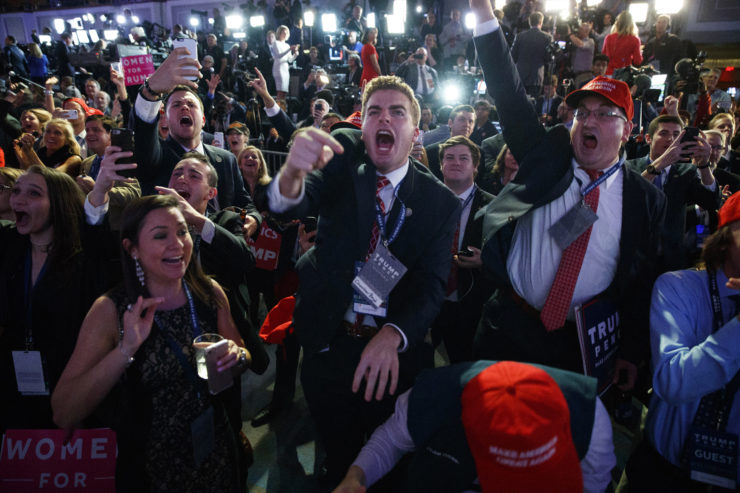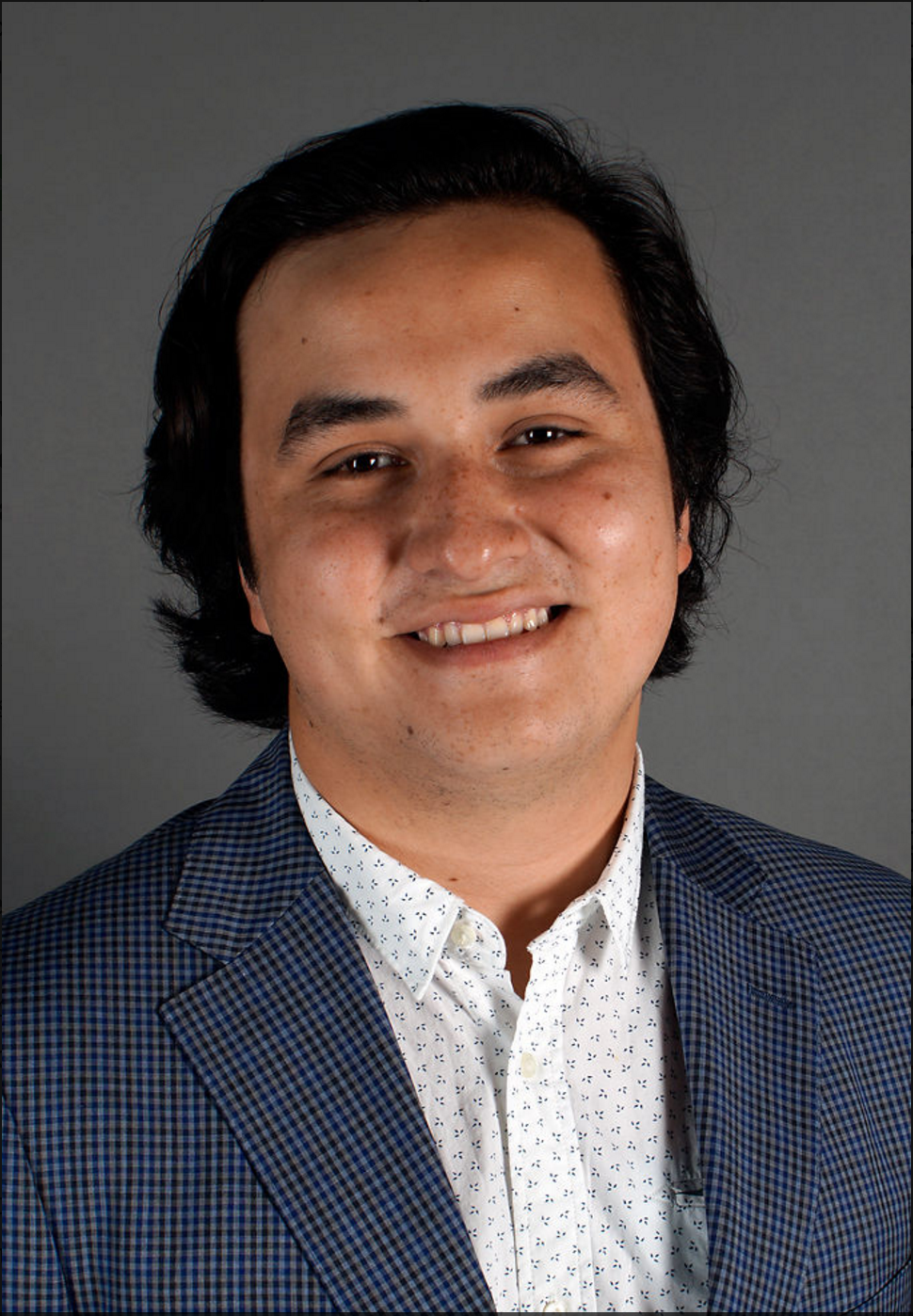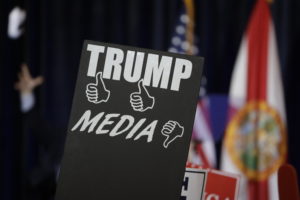
Supporters of Republican presidential candidate Donald Trump cheer as they watch election returns during an election night rally in New York
Will Jarvis and Aaron Reiss, two students at the Missouri School of Journalism, shared with Nieman Reports what they’ve thought about the future of the industry they’re entering in the days since Donald Trump won the presidential election.
Will: The day after the election, my investigative reporting class sat around a table, stunned, trying to figure out how nobody saw this coming. The polls were wrong. The pundits were wrong, and after all, the election cycle provided amazing investigative work—David Fahrenthold’s coverage of the Donald J. Trump Foundation, Michael Barbaro and Steve Eder’s Trump University investigation, the countless stories of his treatment of women—but none of it seemed to matter. This election was about values, not policies, and 53 percent of white women voted for a man who bragged about sexual assault. As a journalist about to enter the industry, it’s worrisome that nearly half of the voters either didn’t believe these stories or simply didn’t care. The scariest outlook, as a young journalist, is the president-elect’s disregard for facts, and more so, his constituents’ blind acceptance of lies.
Aaron: Right. This election showed me how little regard there is for the news outlets I went to regularly during the election—The Washington Post, The New York Times, Politico, NPR. So much of America ignored the stories these outlets reported. And that was a tough realization. I knew journalism was becoming less important in the minds of many people, but I didn’t realize the degree to which that was true. It’s one thing for Trump’s voters to disregard all of the critical newspaper editorials. It’s another for them to ignore—or not trust—stories about Trump’s lack of charitable giving, his lack of payments to contract workers, and his history of maltreatment toward women. This was the first election either of us has participated in, and that made us both particularly invested in it. It also made the result particularly disillusioning. Journalists have an even heavier task ahead than many of us thought.
Will: I have a conservative friend who grew up in central Illinois before moving to Minneapolis for high school. He’s smart. Like, really smart—near the top of his class at the United States Naval Academy, studies computer science, travels across the world for robotics competitions. He’s also a Trump supporter. Most of his news comes from Fox News, but when he has time, he’ll look at The New York Times. “They seem to always have valid evidence,” he texted me.
I asked him why he prefers Fox News over The New York Times. His response: “Mostly because they share my general opinion on political issues.”
It’s easier to share and interact with pieces that further our own worldviews, rather than force us to think critically about the other side. Universities need to be teaching media literacy courses that force our generation to challenge our own views, give opposing arguments a chance and allow us to move away from these echo chambers.
Aaron: Admittedly, I only have Missouri as a sample size, but MU is the flagship university in a traditionally Republican state, and I didn’t interact with a single student who openly said he or she was voting for Trump. Two days after the election, a class of six people that I’m in talked about the result for an hour. The thoughts were homogenous. Everyone was upset and shocked.
Much of the anti-media view in society today seems to be rooted in a distaste for its liberal bias. I don’t think that bias is as consciously exercised as many Republicans say, but I do believe it’s present. For example, almost every photo I saw of Trump was unflattering. Perhaps this view of journalism as a liberal profession has turned journalism education into a liberal idea, filtering out conservative kids before they enroll in college.
If journalists want to avoid being so obviously wrong about the pulse of the country again, they’ll need to fix the flaws in who they surround themselves with. Maybe reporting classes should’ve tasked students to find three Trump supporters on campus. Maybe then we’d realize the bubble we create and live inside.
Will: A really good point you address is the lack of conservative voices in the newsroom. Most journalists I’ve met supported the Democratic candidate and generally lean liberal. Forcing young journalists to interview Trump supporters is a good idea, but for the “liberal bias” to diminish, we need conservative reporters working alongside liberal ones.
Aaron: Absolutely. We also need to get over ourselves. It’s harsh, but true. Journalists seemed to be so hurt and shocked that their work went unnoticed. I get that, but now it’s time to move on. Major news outlets must produce investigations, but they must also humble themselves and write 400-word stories. They must accept that’s all some people want.
After the election, I checked a group message that I’m in with many friends from high school. One friend, who’s black, said he stopped paying attention after one of the debates. Millennials are going to be the largest voting bloc for decades to come, and news outlets must accept that, although there will always be a need for great, thorough work on politics and government officials, there will also be some news consumers who don’t care about that work. And we must now cater to those people, too. This election was a mandate from people for something different in government. It’s time, perhaps, for something different in journalism, too.
Will: Yes, news needs to be digestible for young readers with short attention spans. But many of these issues are complex. A 400-word write-up in The New York Times can’t fully explain the nuances of Obamacare. It’s less about word counts and more about how we tell these stories, how we share this information. Simplification isn’t always the solution.
Aaron: You’re right. It’s not always the solution. And I suppose journalism hasn’t had a solution for a lot of its issues for a while now. Hopefully, the industry finds some during a presidency that will be a trying time for many journalists.




